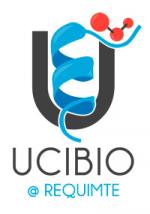About us

Initially, the NanoTheranostics Group was established in 2003 at the FCT/UNL by Pedro V. Baptista, where gold nanoparticles functionalized with ssDNA oligos were used for the first time to study gene expression via a non-cross-linking detection approach. This non-cross-linking mechanism is a pivotal model and strategy within the group and has since been applied for the evaluation of cancer genes expression and for detection and characterization of Mycobacterium tuberculosis (for Tuberculosis management, including identification of molecular signatures of antibiotic resistance). At the intersection of Molecular Genetics and Nanotechnology, we have focused our research on the use of noble metal nanoparticles (mainly gold and silver) for new diagnostics and therapeutics platforms.
CIGMH (Centre for Research in Human Molecular Research). Nowadays, Nanomedicine@FCT is part of UCIBIO – Research Unit in Biomolecular Sciences – a multidisciplinary centre that has been ranked Exceptional by the European Science Foundation.
The Group is dedicated to Nanomedicine, i.e. to investigate nanoscale resources suitable for application in Biomedicine - targeted therapy, molecular diagnostics, theranostics, and nanotechnology applications for synergic therapy.
The Nanomedicine@FCT/UNL fosters fundamental and applied research in Bionanotechnology towards development of new nanotechnology based biomolecular recognition approaches that can be used for diagnostics and of novel therapeutic nanodevices for improved gene and molecular therapeutics.
1- nanodiagnostics – gold, silver and gold:silver alloys nanoparticles for sensitive molecular diagnostics for point of care and microfluidics devices (e.g. LungCARD; TRACE)
2- nanotherapeutics – use of gold nanoparticles in multifunctional assemblies towards effective and flexible vectorization of therapeutic agents (e.g. gene silencing approaches) that can be used against cancer
3- label free biosensors for DNA/RNA characterization
4- nanobiophotonics - manipulation of nucleic acid synthesis, recognition and characterization based on light manipulation (e.g. fluorescence); study of influence of nanoparticles and nanosurfaces on spectral behaviour mediated by DNA/RNA molecules and potential of application in diagnostics (in vitro and in vivo); application to targeted therapeutics
5- evaluation of noble metal nanoparticles as antimicrobials
The Nanomedicine group has established fruitful collaborations with research institutes and private companies
search-site
Recent Publications
Faculdade de Ciências e Tecnologia
Universidade Nova de Lisboa
2025
Login Portal de Sites
Powered by OpenScholar













